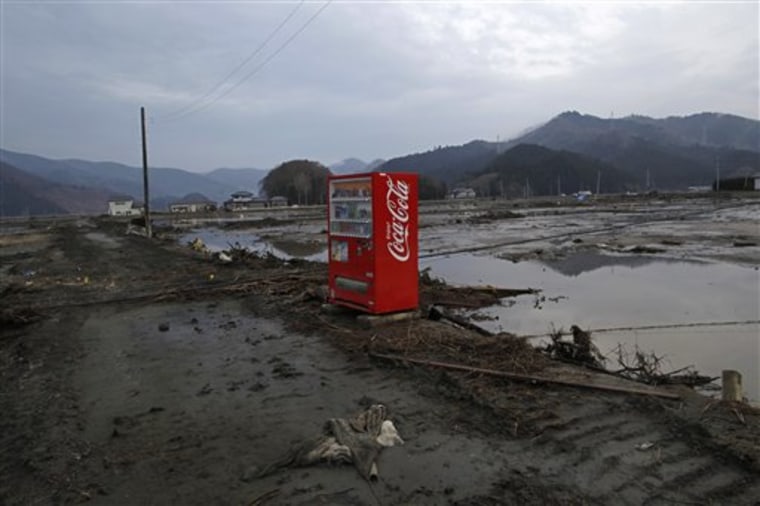Tens of millions of yen has been turned in to authorities by rescue workers and citizens who found the cash in the rubble of disaster-hit areas, the Kyodo news agency reported Sunday, citing police.
and that there was little hope in most cases of finding the original owners if the items were found without identification. Under Japanese law, the finders would be able to keep the money if the owners did not claim it within three months.
Police in the Miyagi prefecture told Kyodo that money has been returned in less than 10 percent of cases.
Meanwhile, the Japanese and U.S. militaries were launching another all-out search for the bodies of earthquake and tsunami victims along Japan's ravaged coast.
About 22,000 Japanese troops, along with 110 from the U.S., will search by land, air and sea on Sunday. They'll skip the evacuation zone around the damaged nuclear complex that is spewing radiation. Troops and police officers have also been searching within the evacuation zone, but it is dangerous, painstaking work.
As many as 25,000 people are feared dead in the March 11 disaster, but only 13,000 deaths have been confirmed. Many bodies have likely been washed out to sea and will never be found.
Defense ministry spokesman Norikazu Muratani says the troops want to do their best to find bodies for the families.
In other developments:
- Japanese engineers hope to stop pumping radioactive water into the sea on Sunday and start moving more highly contaminated water out of a crippled nuclear reactor. Efforts to regain control of six reactors hit by the 50-foot-high tsunami, which caused partial meltdowns to some reactor cores after fuel rods were overheated, has been hindered by 60,000 tons of radioactive water.
- An unmanned drone helicopter is scheduled to fly over four reactors at the Fukushima Daiichi plant, north of Tokyo, to video the extent of damage in areas where workers are unable to safely enter due to high radiation.
- Operator Tokyo Electric Power Co. apologized Saturday over the crisis. "I would like to apologize from my heart over the worries and troubles we are causing for society due to the release of radiological materials into the atmosphere and seawater," Sakae Muto, a TEPCO vice president, told a news conference.
- Prime Minister Naoto Kan is scheduled to visit Ishinomaki city on Sunday, one of the areas hardest hit by the magnitude 9 earthquake and tsunami. More than 153,000 people are living in school gymnasiums and other evacuation centers.
- Banri Kaieda, a minister whose portfolio includes the nuclear industry, said he hoped evacuees from the radiation zone in Fukushima could visit their homes as soon as possible.
This article contains reporting from msnbc.com staff, The Associated Press and Reuters.
